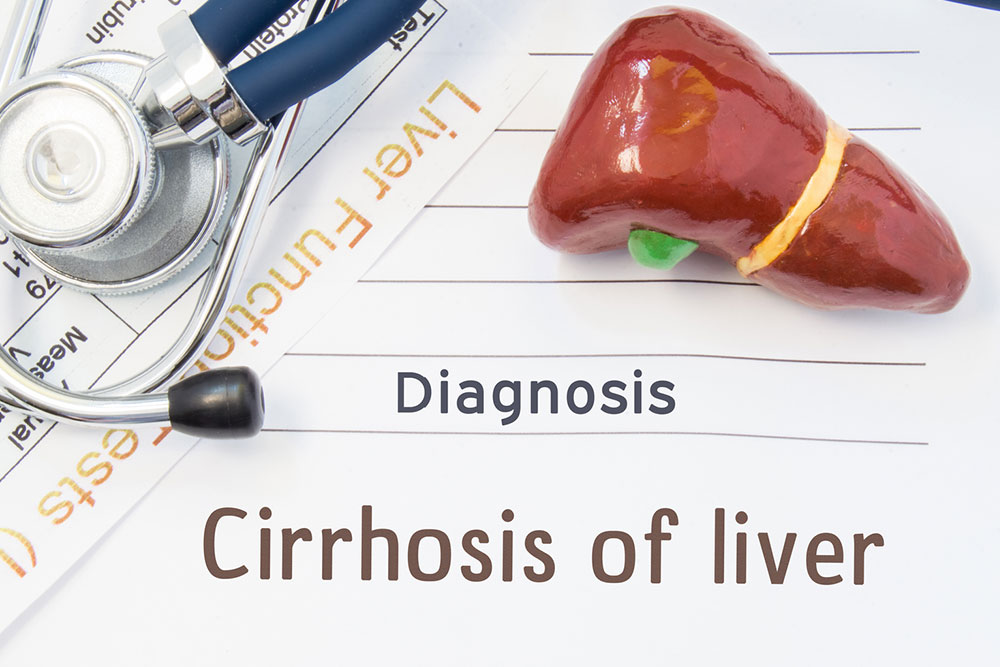
An overview of cirrhosis
Cirrhosis, a degenerative condition, is caused when the liver’s tissues are affected by various conditions, such as hepatitis or excess consumption of alcohol.
Cirrhosis can be fatal as it advances. A scar tissue forms when the liver tries to repair itself from any disease or injury. When more and more scar tissues replace the liver’s healthy tissues, its functioning is compromised. Furthermore, intense scarring restricts the blood flow to the liver. As a result, the blood finds a different path to return to the heart, usually through the veins along the stomach and esophagus. This, in turn, increases the pressure on the veins, causing them to enlarge or even rupture.
Cirrhosis mainly occurs due to long-term injuries to the liver. This could either be due to excessive alcohol consumption, obstruction of bile flow, exposure to drugs and other toxic substances, viruses or genetic deficiencies.
Excessive alcohol consumption is one of the major causes of cirrhosis. Women who drink are heavy drinkers are at a higher risk of developing cirrhosis as their bodies cannot process large quantities of alcohol. The effects of alcohol on the liver vary from person to person. While for some people, a single drink can cause the formation of scars, it can take several drinks to have the same effect on others. Additionally, being obese also increases the risk of liver cirrhosis.
The damage done by cirrhosis is irreversible. However, if diagnosed at an early stage, it can be limited. Some serious cases may even need a liver transplant. It is estimated that nearly 31,000 people in the country itself die due to cirrhosis.
The liver plays an extremely vital role in our body. The liver, in addition to performing other vital functions, produces bile which is stored in the gall bladder. This bile, when released into the small intestine, breaks down fatty foods. It also regulates the amount of sugar, fat, and protein entering the bloodstream. The liver also filters out the blood from alcohol and other harmful chemicals and drugs. In coordination with the spleen, the liver also gets rid of worn-out red blood cells.
The liver is an important part of the immune system as it helps get rid of harmful bacteria and viruses. Since improper functioning of the liver can make one susceptible to infections, it is essential to take the necessary measures to prevent this condition.
If left untreated, it can lead to kidney failure, liver cancer, intense bruising, swelling in the abdomen and legs, the formation of gallstones, etc.




